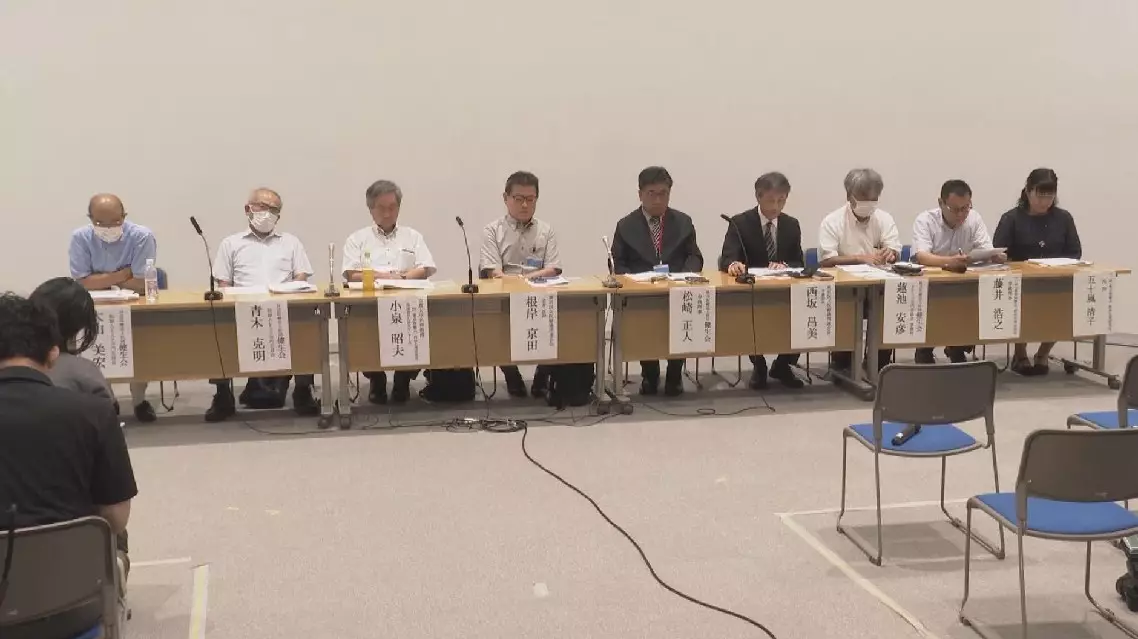Japanese medical institutions have called for nationwide testing of organic fluorine compounds in residents' blood, urging the Tokyo Metropolitan Government and Japan's central government to identify pollution sources and enhance cleanup efforts following multiple incidents and rising health concerns among Tokyo residents.
At a press conference held on Thursday, representatives from various medical institutions warned that many residents have high concentrations of organic fluorine compounds in their blood, posing significant health risks.
"The concentration of organic fluorine compounds exceeding 20 nanograms per milliliter in the blood can pose health risks. In four tests of organic fluorine compounds, 27.5 percent of people have exceeded the level. Therefore, I believe the pollution of organic fluorine compounds in the Tama area of Tokyo is a significant issue," said Yasuhiko Hasuike, director of the social insurance organization department at Social Medical Corporation Kenseikai.
Medical institution representatives stated that they submitted suggestions and requests regarding this issue to the Tokyo Metropolitan Government on the same day. However, the government's response was vague, and no detailed explanations were provided on the methods for pollution cleanup.
Masato Matsuzaki, executive director of Social Medical Corporation Kenseikai, expressed his concerns.
"The Tokyo Metropolitan Government stated that the central government of Japan has not disclosed any information regarding the health hazards caused by organic fluorine compounds. Therefore, the Tokyo Metropolitan Government claimed it could not do much, leaving our questions unanswered and consistently showing a passive attitude. This concerns the health of Tokyo residents, yet the Tokyo Metropolitan Government has not shown a proactive stance, which I believe is a very serious issue," said Matsuzaki.
Last November, Tokyo Shimbun reported that as of January 2023, 1.4 million liters of water contaminated with organic fluorine compounds were stored at the U.S. Yokota Air Base in Tokyo, distributed among seven storage tanks on the base.
One of these tanks contains 950 liters of contaminated water, with an organic fluorine concentration exceeding 180,000 nanograms per liter. This is more than 3,600 times Japan's provisional safety standard for organic fluorine content in groundwater and rivers, which is 50 nanograms per liter.
The report cited a U.S. military source as saying that the water in these storage tanks was originally intended for mixing with organic fluorine-containing firefighting foam concentrate in the event of a fire. However, due to equipment issues, the concentrate flowed back into these storage tanks, causing the contamination.
"The primary sources of organic fluorine compound pollution are likely the bases of the Japan Self-Defense Forces and the U.S. military stationed in Japan. In fact, multiple incidents of firefighting foam leaks have occurred at the U.S. Yokota Air Base in Tokyo, making it very likely that these bases are the largest sources of such pollution in Tokyo. Although the long-term health hazards of organic fluorine compounds remain unclear in many respects, the World Health Organization considers them to have the same carcinogenicity as asbestos and dioxins," said Kyota Negishi, chairperson of Tokyo Federation of Democratic Medical Institutions (Tokyo Min-iren).
"Residents' concerns about health are increasing. Regarding the issue of U.S. military bases, the Tokyo Metropolitan Government's current stance has been that this is a matter of national security handled by the central government, which they do not involve themselves in. However, given the health threats to Tokyo residents, we hope the Tokyo Metropolitan Government can do as much as possible or urge the central government to take relevant actions. An investigation into the U.S. military bases must be conducted," Negishi added.
Among the 111 locations that exceed the national provisional standards announced by the Ministry of the Environment, the concentration of organic fluorine compounds in the groundwater in Settsu City, Osaka Prefecture, has exceeded the national provisional standard by 420 times, reaching 21,000 nanograms per liter.
The ministry added that in 98 percent of these locations, the pollution sources could not be confirmed.

Tokyo medical community demands fluorine pollution probe, points to US military bases









